
Tips for talking with teens

Is your child a gestalt language processor?
Navigating the online wilderness
Help! my child’s not coping
Remedial options
OFFICIALLY ENDORSED BY CNA
AUTUMN 2024
HOMESCHOOLING CONFIDENTLY
The way forward
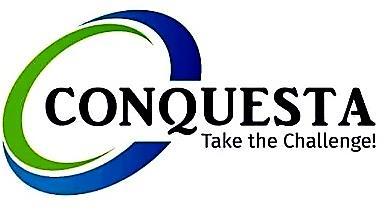

Why us?
We have been around since 1998.

Proud member of Also available in eSwatini, Botswana and Namibia
Grades 1 – 9 Samples





ACADEMIC OLYMPIADS
Subject List Afrikaans

English



The 2024 entry forms are available on our website at www.conquestaolympiads.com together with all the relevant information, including subjects, costs, writing dates and samples of our papers.
• We provide all the Olympiad papers and personalised answer sheets for learners, together with detailed instructions for teachers or parents to invigilate the Olympiads.
• No teacher or parent training is required.
• Multiple-choice question papers enhance learning.

Low Cost
R25 once-off registration fee for each learner, plus R28 per learner for each subject being written.
Example: Registration is R25 + (R28 x 2 subjects = R56) = R81.
• Creatively challenges student knowledge.
• Every participant will receive a certificate at the end of the year, regardless of their results.
• Enhances learner’s portfolio.
• Orders over R2 000 within South Africa are sent by courier. Homeschools and orders from outside South Africa are emailed.
• Past papers are available throughout the year, online at www.conquestapastpapers.com , or by contacting Ms. Marelize Heyneke at africa@conquestapastpapers.com or on 031 764 1972.
We encourage you to take advantage of this exciting opportunity. Should you wish to participate, kindly contact Mrs. Melanie Mengel by email at conquest@iafrica.com, or by phone on 031 764 1972, so that we can register your homeschool in the meantime and expect your entries to follow.
YOU ARE INVITED! 2024
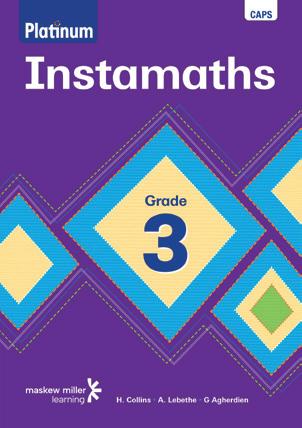

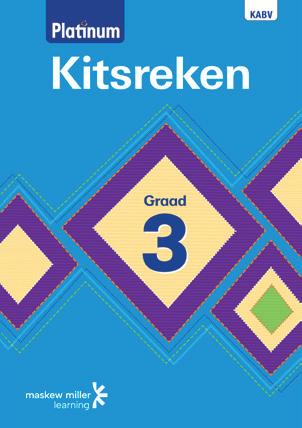

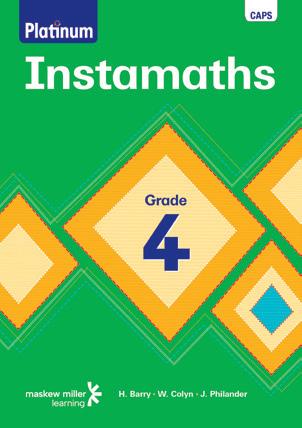

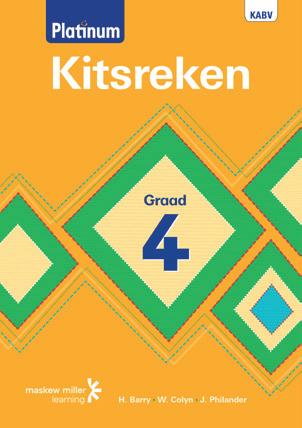

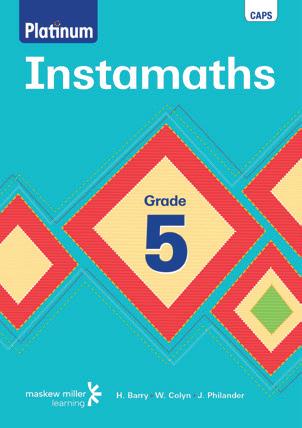

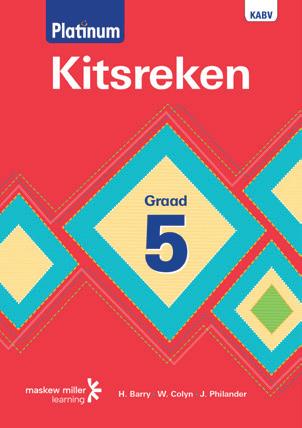
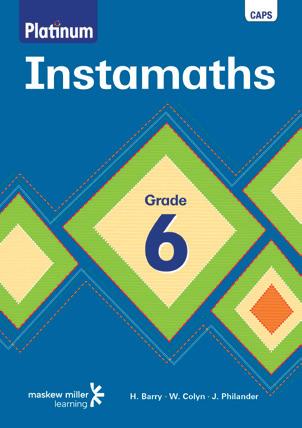

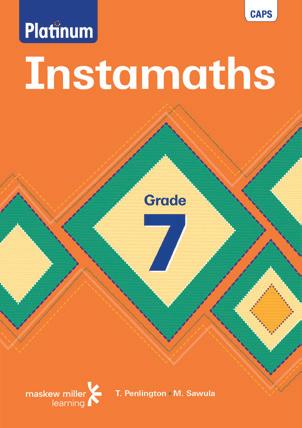









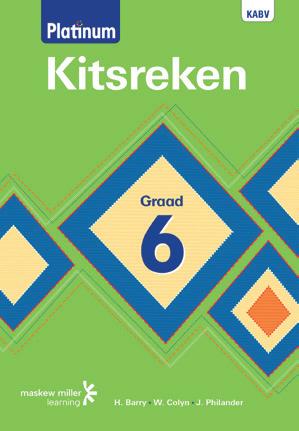










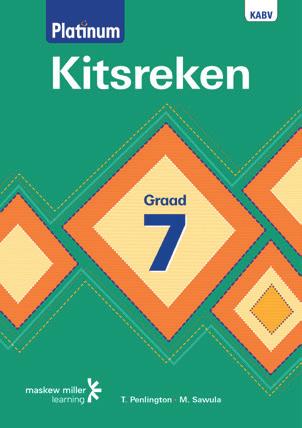







Instamaths
Instamaths helps learners to gain
and confident
contain
Customer Orders Tel: 021 532 6008 info@mml.co.za
more at mml.co.za
Platinum
a clear
understanding of Mathematics. The workbooks
CAPS-aligned exercises to practise key mathematical skills that promote and consolidate learners’ problem solving skills.
Learn
6
The way forward Reputable homeschool and online schooling providers are taking a moment to step back and evaluate
Tips for talking with teens
Consistent communication remains one of the best strategies to help your child navigate the teenage years
Navigating the online wilderness
Forget the risks associated with posting pictures and videos on social media – what about your child’s digital footprint?

Contents
20

22
Why we should embrace AI in education
The inevitable next step of adopting AI responsibly in our education system

Help! My child’s not coping
When is it time to look at remedial or alternative schools?
26 Ask Dalena Dalena van der Westhuizen answers questions and concerns from parents about learning, concentration, memory and cognitive development
2 contents
8 10


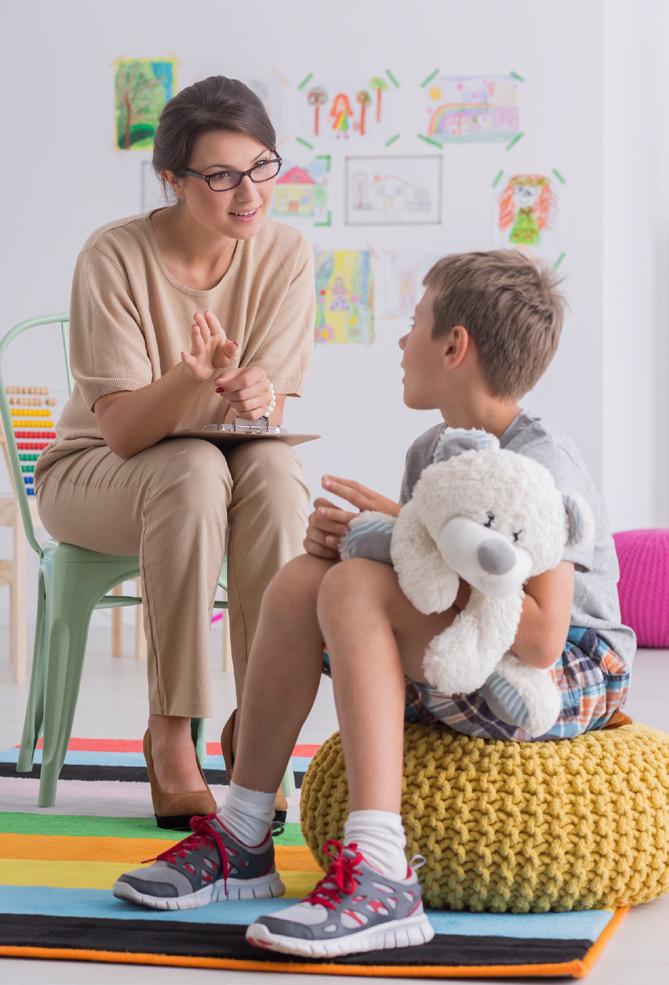
Cooking and bonding
28
Even the most ardent meat-lovers will enjoy these meat-free recipes – and that includes the kids!
32
The video-based learning revolution
Fuelled by digital technology and connectivity, video-based learning has emerged as a transformative force reshaping education


34 Money management for kids
In a world that’s becoming increasingly interconnected and financially complex, instilling financial literacy in children has never been more crucial

36
Is your child a gestalt language processor?
Parents can play a vital role in supporting their child’s language and holistic development
3 contents

Homeschooling can be exciting and terrifying at the same time. Many parents are constantly wondering whether the choices they’re making are the right ones. Is there a better curriculum they don’t know about? Is this homeschooling idea really working or would their children be better off in a public school? The doubts are persistent.
Whether you’ve been a parent for months, years or decades, all parents have had moments of worry and second-guessing.
Editor Adri Viviers | adri@isikhova.co.za
Managing Director Imraan Mahomed imraan@isikhova.co.za
Operations Director Thuli Majola thuli@isikhova.co.za
Copy Editor Anne Phillips
Design & layout Joanne Brook joanne@isikhova.co.za
Advertising Sales 011 883 4627
There's an overwhelm of decision-making as we juggle finding our unique style of parenting, work and home life, while facing all the new phases and milestones that accompany these areas of our lives.
Questions themselves are good, but dwelling on them continually – or, worse, revising our decisions repeatedly after we’ve made them – can be detrimental. No parents are prophets: we do our best, armed with our knowledge of the world, ourselves and our children, and we make our choices in the very best faith, aware that there are variables beyond our control, but that our love and commitment are constants.
Certainly, we need to ask questions, discuss considerations with whoever we find helpful and take time to reflect before proceeding and finally taking action. While questions can be asked again in light of new information and developments, it’s also important not to give up too soon.
Remind yourself that, as with any other form of education, there are good and bad things
about homeschooling. It isn’t always perfect and not every day inspires great learning. However, it does allow us to teach children as individuals. If something isn’t working, it’s okay to try a different approach.
Fortunately, there are a variety of resources available for homeschooling families, including SA Homeschooling & Beyond. We hope this issue helps you on your parenting journey so that you can embrace your unique parenting style with confidence and joy.
Happy reading!
Recognised as a homeschooling stakeholder by the Department of Basic Education
Officially endorsed by CNA as its preferred homeschooling media partner
Subscriptions & General Enquiries: sahomeschooling@isikhova.co.za
SA Homeschooling magazine is independently published by Isikhova Media (Pty) Ltd, Johannesburg, 2193, South Africa Tel: 011 883 4627 | www.isikhova.co.za










4 a note from the editor SA HOMESCHOOLING AND BEYOND AUTUMN 2024
savvy thinkers smart doers together people The views expressed in this publication are not necessarily those of the owners, the publisher, contributors or their agents. While every effort has been made to ensure the accuracy of its contents, neither SA Homeschooling magazine, the owners, the editor, the publisher, media alliance partners nor any of its endorsed organisations or contributors can be held responsible for any omissions or errors; or for any misfortune, injury or damages which may arise therefrom. The same applies to all advertising. SA Homeschooling magazine © 2024. All rights reserved. No part of this magazine may be reproduced without prior written permission from the publishers. Find us on Facebook and Instagram
Adri



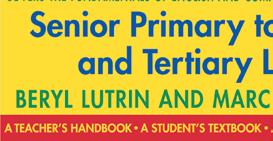









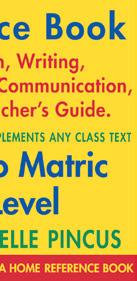

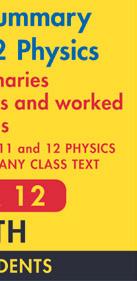





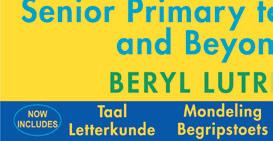









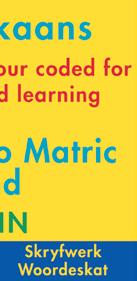







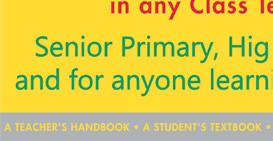











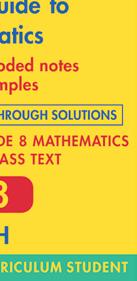





















South Africa’s Favourite Study Guides Simple, visual and logical reference books perfect for the classroom and distance learning Available from leading bookstores and on www.berlutbooks.com Berlut Books are now part of Penguin Random House South Africa For more information: www.lapa.co.za or 021 460 5400 / 011 327 3550 For orders: lapaorders@penguinrandomhouse.co.za
The way forward
Rather than consistently pushing, reputable home and online schooling providers are taking a moment to step back and evaluate. What are we doing well? What could we be doing better? What do our students need most?

During and since Covid-19, homeschooling and online schooling have grown in ways no-one could have anticipated. What was once a relatively niche offering has become increasingly commonplace. New courses in new languages are constantly being developed, new legislation is being debated and drafted, and new providers are launching.
As a lot of the initial fanfare starts to subside, however, the sector seems to be at a point of consolidation. Rather than consistently pushing, reputable providers are taking a moment to step back

and evaluate, says
Louise Schoonwinkel, MD of Optimi Home.
It’s time to choose the right provider Developments over the past few years have made it clear that not all homeschooling and online schooling providers are the same. While many of the companies that grew out of the pandemic have the knowledge, expertise and resources to deliver the quality education that homeschoolers and online students need, some don’t.
It’s become more important than ever for parents, guardians and students to assess their chosen
provider carefully. Companies that can demonstrate an impressive legacy, exceptional offerings and strong relationships with industry bodies are likely to stand out in this growing market.
It’s time for important legislative shifts
This period of consolidation hasn’t been a time of stagnation. Some important conversations are taking place at government level about how to regulate online schooling. The legislation regarding homeschooling is

homeschooling confidently SA HOMESCHOOLING AND BEYOND AUTUMN 2024
6
homeschooling confidently
well established – it dates back to the dawn of SA’s Constitution in 1996. However, online schooling legislation is only just starting to gain momentum.
What’s clear is that the two won’t ultimately fall under the same umbrella in terms of how they’re governed. A draft framework for online schooling has been developed which suggests that online schooling providers will register with the Department of Basic Education, just as any school would. However, like homeschooling, assessment processes are likely to be tightly controlled.
Again, reputable providers will welcome these stipulations – but they will probably be treated with fear by less scrupulous rivals.
It’s time for quality
Now is the time for homeschool and online providers to deliver an exceptional product developed by leading educators so that home and online students can get the most out of their education. It’s about high-quality resources, innovative approaches and meaningful engagement. It’s about dedicated fitness, wellness and digital offerings. And it’s about looking to the future as we think about online exams.
“At Impaq, we want our homeschoolers to have everything they need from their
“Some important conversations are taking place at government level about how to regulate online schooling.”

materials and our online students to have the best teachers in their virtual classrooms,” says Schoonwinkel. “We’re here to promote homeschooling and online schooling as a viable alternative to bricks-and-mortar schools – for students who can’t access traditional schools, live in remote areas, have extracurricular
commitments or thrive in smaller learning environments.
“Home and online schooling providers are establishing themselves as critical parts of SA’s education system. During this time, a moment of reflection is essential – it will ensure their longterm value for decades to come.”


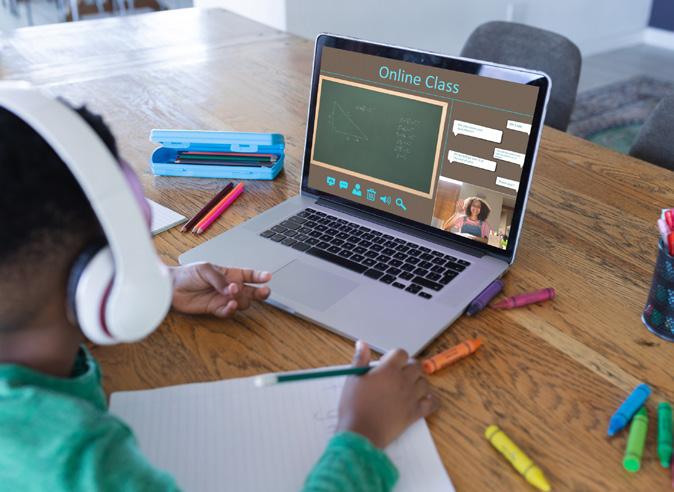

7 AUTUMN 2024 SA HOMESCHOOLING AND BEYOND

Tips for talking to teens

Many parents find it difficult to understand and connect with their children during their teenage years, which are a time not only of transition and growth, but also of academic, social and emotional challenges that can affect their well-being and behaviour
Desirée Hugo, Academic Head at ADvTECH Schools, says parents play a crucial role at this time and consistent communication remains one of the best strategies to help them navigate the teenage years. However, this is easier said than done for many parents when their children seem distant, rebellious or moody.
Hugo provides some guidelines for effective communication with your teenager that can help strengthen your relationship and enhance their academic and personal development journey.
Parents must acknowledge that high school represents a big change for teenagers, who have to deal with more complex and demanding coursework, and higher expectations.
“They have to make important decisions about their future, such as what subjects to take, what career to pursue and university choices. These decisions can cause constant stress and anxiety for teenagers, who may feel overwhelmed or uncertain about their choices. They may also face temptations to engage in risky behaviours, such as smoking, drinking or using drugs. High school can

SA HOMESCHOOLING AND BEYOND AUTUMN 2024 8 create a conversation
also affect teenagers’ emotional development, as they go through hormonal changes, mood swings and identity issues,” says Hugo.
The role of effective communication
Building an environment characterised by effective communication is essential for parents to help their teenagers and foster a positive and trusting relationship, she says.
Effective communication benefits your teenager’s academic, social and emotional development. By communicating effectively, you can help your teenager:
• Improve their academic skills.
• Develop their social skills.
• Enhance their emotional skills and resilience.
• Boost their self-esteem, selfconfidence and self-identity.
• Prevent or reduce their involvement in risky behaviours.
• Build trust in family relationships.
Guidelines for effective communication
Hugo says developing effective communication skills is a marathon, not a race, but that consistently being aware of the benefits will ultimately be rewarding for both parent and child. She recommends the following:
• Choose a good time and place to talk, when you and your teenager are both calm, relaxed and free from distractions.
create a conversation
• Use open-ended questions, such as: “How was your day?” or “What are you interested in?” to invite your teenager to share their thoughts and feelings.
• Use active listening skills, such as nodding, smiling or paraphrasing, to show your interest and attention.
• Use positive feedback, such as praise, appreciation or encouragement, to acknowledge your teenager’s achievements and efforts.
• Use “I” statements, such as “I feel” or “I think” to express your own thoughts and feelings, without blaming or accusing your teenager.
• Use assertive communication, such as “I need” or “I want” to state your own needs and expectations, without being aggressive or passive.
• Use compromise and negotiation, such as “Can we agree on…?” or “Can we find middle ground?” to resolve conflicts or disagreements, without imposing or giving in.
• Use humour and fun, such as jokes, games or activities, to lighten the mood and bond with your teenager.
• Use empathy and compassion, such as “I understand” or “I care” to show your support and understanding for your teenager’s challenges and emotions.
“Consistent communication remains one of the best strategies to help your child navigate the teenage years.”
• Don’t underplay your teen’s concerns by highlighting future positives. Let them live in the moment and acknowledge their anxiety before offering reassurance.

9 AUTUMN 2024 SA HOMESCHOOLING AND BEYOND
Navigating the online wilderness

"KForget the risks associated with posting pictures and videos on social media – what about your child’s digital footprint? Anything kids share online leaves an indelible trail behind it, which universities and future employers explore when considering a person’s background
ids need to understand the need to manage their online presence responsibly, as it has a potential impact on future opportunities,” says Doros Hadjizenonos, Regional Director at leading cybersecurity specialist Fortinet. “It’s important for kids to understand that whatever they post on the Internet is there forever and everyone can see it. This includes messages, private photos and videos. All of these can be copied and shared.”
The start of the new school year marks an exciting new phase for kids, but it could also mark the first
step into a minefield of online risks. This is the warning from Hadjizenonos, who says young children, tweens and teens face a growing risk from predators, scammers, fraudsters and bullies online.
Giving the enemy ammunition
He says the biggest risks facing kids online involve the information they willingly (and unwittingly) share. “Most kids don’t fully understand how the photos, videos and personal information they post can be used against them. For example, there’ve been cases of fraudsters posing as online friends, persuading young

“Kids need a trusted adult they can talk to if they get into trouble or have done something they regret.”
SA HOMESCHOOLING AND BEYOND AUTUMN 2024 10 digital minefield
people to share inappropriate photos of themselves. They then use those photos to extort money from them. The consequences can be devastating.”
He points out that beyond the immediate risks, anything kids share in the online space also contributes to an online repository of information which universities and future employers will explore when considering whether to accept them.
Anti-social environments
Social and gaming sites present a range of risks to kids online too, says Hadjizenonos, from cyberbullying to phishing. According to Unesco, cyberbullying impacts one in 10 children, with long-lasting consequences on their mental health, well-being and education. This bullying and harassment can take the form of calling the victims offensive names, spreading false rumours about them, sending them explicit images they didn't ask for, posting embarrassing information or images of them that were copied without their knowledge, or even direct physical threats.
Teens are also particularly at risk of phishing and online shopping scams.
“In gaming, where people can share gifts, kids also need to be cautious about any links and
attachments they’re sent, as these could launch malware or steal personal information,” warns Hadjizenonos.
Building a safe, trusted environment




Kids need a trusted adult they can talk to. The adult should be there to double-check any communications and links


causing kids concern. And if kids get into trouble, or have done something they regret, they need to know they have someone they can approach for help.
Hadjizenonos notes that parents should update all software and applications, secure the wifi environment and use built-in parental controls on devices to help detect
inappropriate or dangerous situations.
“Kids need to realise the dangers of using weak passwords or re-using passwords across multiple sites. Identity theft and reputational damage are genuine risks, so kids need to be taught not to post information about where they live or their location. They also need to keep their online profiles private, so only their friends and family can access them,” he says. For additional security, parents can control kids’ social media pages and could even download a device usage contract between kids and parents, he adds.
However, the best defence against cyber-abuse is education. Explain to your children that pushing “Send” before thinking carefully is no different from accepting a lift or a drink from a stranger and that the natural impulse to post photos or anecdotes about themselves, which seem hilarious at the time, can rebound badly in years to come, when the image of Jane drunk and dishevelled at a matric dance or Johnny groping his girlfriend can cause them untold misery.
Once kids realise what digital communication can become, in the wrong hands, they'll develop the cyber-savvy they need.
11 digital minefield
AUTUMN 2024 SA HOMESCHOOLING AND BEYOND


EduXplore ord
Tuisonderwys
Kleinskole
Privaatskole
Kurrikulumverskaffers
Leerhulpmiddels
GRATIS

Buitemuurse aktiwiteite

Toegang*
11 Mei 2024

Leer is 'n ewige proses en 'n integrale deel van die lewe. EduXplore bied hulpmiddels om gesinne voor te berei vir 'n toekoms in 'n wêreld wat voortdurend verander.
• Interaktiewe Uitstallings
• Statiese Uitstallings
• Kinderaktiwiteite
• Jong Entrepreneurs Uitstalling
• Demonstrasies
• Lesings / Werkswinkels











Tersiêre Instellings en opleiding Stokperdjies

*Aanlyn Registrasie
www.homeschoolexpo.co.za











Why you should attend a homeschool expo
KragDag and SA homeschoolers join hands every year to present a series of education expos across the country. The expos focus on private alternatives to public education and training
Around 70 exhibitors introduced their products and services to visitors during the 2023 education expo, including home education curricula, extracurricular activities, support materials and tertiary solutions.
The expo offers the opportunity for parents to rub shoulders with veteran homeschoolers, experts with years of experience and homeschool alumni. SA Homeschooling & Beyond spoke to Sone Saunders, overall co-ordinator of KragDag, about the importance of these events for the homeschooling community.
What is a homeschooling and alternative education expo?
It’s an event where educators, parents and providers of educational resources come together to showcase their products and services to an engaged audience. It’s a significant informational and educational platform, often offering free admission to visitors.

Who should attend?
• Families considering alternative education options such as homeschooling or private schools.
• Existing homeschooling/ private school families.
• Families seeking information on matric qualifications.
• Families looking for additional or extramural activities.
• Families with children who have special needs.
• Families interested in alternative tertiary education opportunities.
AUTUMN 2024 SA HOMESCHOOLING AND BEYOND 13 local events
local events

Why is it important for current and future homeschoolers to attend?
These expos provide tools to prepare families for a future in a constantly changing world. The learning process extends beyond just the child and encompasses the entire family, making such events invaluable for both current and prospective homeschoolers.
What can attendees expect at such an expo?
Attendees can expect a range of interactive and static exhibits, kids’ activities, demonstrations, lectures and workshops. Exhibitors cover a wide spectrum, including home education, small schools, private schools, curriculum providers, teaching aids, extracurricular activities, tertiary institutions and training opportunities.

What tips can you share when attending a homeschooling expo?
• Plan ahead: Review the schedule and identify sessions of interest.
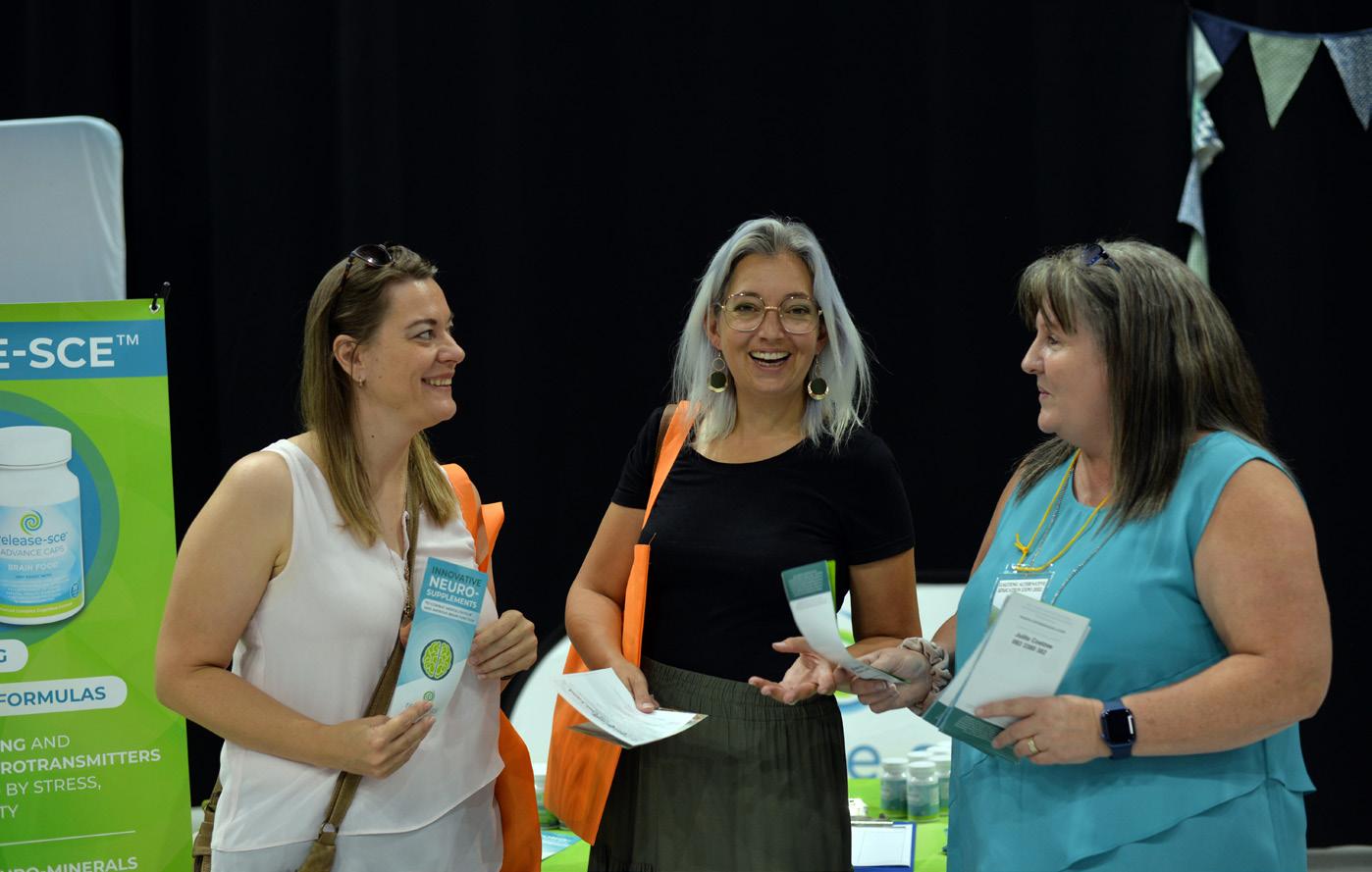
• Draw up a budget: Determine spending limits for curriculum materials.
• Take notes: Record important information and insights.
• Ask questions: Seek advice from experienced homeschoolers and educators.
• Network: Build connections within the homeschooling community.
• Take breaks: Stay hydrated and give yourself time to recharge.
• Sort product information: Organise materials you’ve gathered for future reference.
• Research before buying: Place orders calmly after weighing the options and budgeting effectively.
By following these tips and actively engaging with the expo offerings, attendees can maximise their experience and gain valuable resources for their homeschooling journey.
14 SA HOMESCHOOLING AND BEYOND AUTUMN 2024
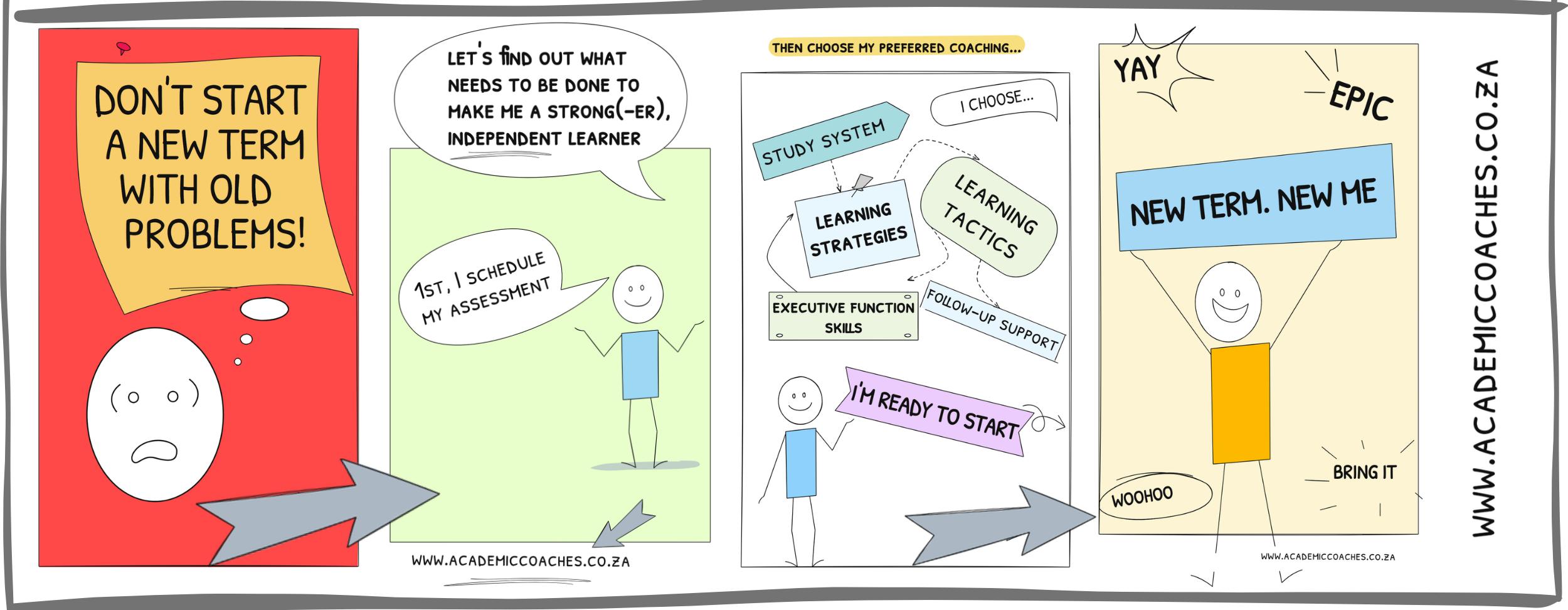




15 AUTUMN 2024 SA HOMESCHOOLING AND BEYOND chalkboard Lorem Ipsum BOOK THIS SPACE! thuli@isikhova.co.za or ruwayda@isikhova.co.za Advertise your business on our chalkboard. Contact us for more information.
I’ve recently received many phone calls from parents who’re concerned that things aren’t going as well as they’d hoped they would. They want to know whether they should wait and see if learning/reading/ working faster/paying attention/ working independently/planning and prioritising tasks (the list can go on) improves and how to know when it’s time to seek help.
I always get these questions at this time of year from parents from all walks of life, concerning children from various ages, backgrounds, schooling systems and abilities.

“Get to know your child’s learning skills profile: their cognitive and executive function skill strengths and weaknesses.”
Learning frustrations

Dalena van der Westhuizen, cognitive development specialist, executive function skills coach and co-founder of BrainAbility, explains how to spot learning differences and when to seek help
So let’s look at these questions and the answers that have been shaped by more than a decade of intensely working with parents and children who, just like you, might be looking for the right answers.
Let’s start with how to spot learning differences. While all children certainly have their
own sets of strengths and weaknesses and shouldn’t be expected to fit a standard mould (especially when it comes to learning), there are universal indicators that help is needed.
Here are a few examples:
• Difficulty multi-tasking
• Battling to ignore distractions and pay attention
• Frequent (same/similar) mistakes
16 supportive parenting
SA HOMESCHOOLING AND BEYOND AUTUMN 2024
supportive parenting
• Struggling with maths and problem-solving
• Struggling with reading, reading fluency or reading comprehension
• Difficulty retrieving information on the spot/under pressure
• Doing poorly in tests or exams
• Difficulty relaying information, especially in their own words
• Struggling to work independently
• Rushing through tasks and missing all the details
• Difficulty visualising processes or formulas
• Difficulty remembering or following multi-step directions
• Frequently asking for instructions to be repeated
• Struggling with planning, organising, starting and finishing tasks
• Having to re-study the same information a few times
• Taking a long time to complete tasks, battling with timerestricted assignments
When to seek help
We often start a new year with the hopes that things will be different. We want to believe that trying harder, a new tutor or extra classes, a new curriculum, a new school, homeschooling or a different study method will change things – and often


these things indeed result in small and temporary improvements.
Yet towards the second quarter of the year, often the very same problems and frustrations of the previous

This happens because the very first step in truly addressing these issues is pin-pointing what’s causing them in the first place. Get to know your child’s learning skills profile: their cognitive and executive function skill strengths and weaknesses. Only then can a plan of action be put together to permanently address frustrations.
As for when to seek help, my answer is always: “If a child’s already getting assistance in the form of extra time, tutoring, occupational therapy, extra classes/programmes or frequent help from a parent, yet is still struggling or unable to function as an independent student, it’s time to get help as soon as possible.”
17 AUTUMN 2024 SA HOMESCHOOLING AND BEYOND
supportive parenting
“If a child’s already getting assistance, yet is still struggling or unable to function as an independent student, it’s time to get help.”

Does “Let’s wait and see” work?
I often meet parents who decide to take the “wait and see” approach because they themselves struggled in school, yet are successful people today, or they relish the fact that their child’s good on the sports field, so academics aren’t as important

or they simply prefer to believe that things will get better by themselves.
Some believe that waiting is the right approach, as their child “works hard and is doing OK”, or “loves going to school”, or “is homeschooled so that we can do things our way”. As parents, deep down they’re noticing little red flags, yet choosing to ignore them.

I then see the very same parents and children a few months or years later, urgently looking for answers and help. The reality is that our children are learning, growing up and facing a completely different world from the one in which we, as parents, grew up. Whether they like it or not, our children are facing international competition when it comes to tertiary studies, finding a good job and competing in a fast-paced, ever-changing work environment.
In the workplace of the future, they’ll need to be able to continue learning, operate at a fast pace, think on their feet, problem-solve and work independently. If they’re unable to keep up, they’ll be left behind – with fewer choices and fewer opportunities.
These may be harsh words, but they're true – so please don’t “wait and see”. Act now!
18 SA HOMESCHOOLING AND BEYOND AUTUMN 2024


























Books & magazines with SPuNK! Shop South Africa’s coolest books, magazines and educational toys! HS O P ONLINENOW! online SHOP.BKPUBLISHING.CO.ZA
navigating smart technology
Despite the significant benefits of AI tools, lingering concerns persist. Many worry that tools like ChatGPT are here to take jobs. In addition to professional anxieties, there are concerns about the consequences of critical thinking for our youth. Major concerns include students now taking the easy road as a means of “copying and pasting”, instead of doing the thinking work required for assignments. Even though this might worry parents, the big question remains: with these tools available to everyone, how can we embrace, rather than exclude, them from the education system?
Instead of avoiding or banning AI tools, schools need to introduce lessons on how to use them responsibly as an educational resource. Much the same thing happened when calculators were introduced: many viewed them as controversial pieces of technology, with teachers and parents sanctioning their use for fear that students would become


Why we should embrace AI in education

too reliant on them.
As with calculators, technological disruption from AI within the education space is inevitable and has its place, as long as children are taught how it can add value. However, with the digital divide that exists in South Africa, the use of AI tools in the education system might take time to
Ashley Bruyns, Head of Engineering at Altron Systems Integration, emphasises the importance of artificial intelligence (AI) and the inevitable next step of adopting it responsibly in our education system
20
SA HOMESCHOOLING AND BEYOND AUTUMN 2024
surface, since not all students have equal access to technology, which can lead to even wider disparities. The need to close the gap between the haves and have-nots when it comes to technology is well recognised. The youth of SA need to be able to benefit from AIdriven educational tools in order to set them up correctly for their future.
The good news is that there are many forward-thinking schools and institutions in the country
“The youth of South Africa need to be able to benefit from AI-driven educational tools in order to set them up correctly for their future.”
navigating smart technology
that are adopting AI as a learning tool, with an emphasis on teaching students how to use it appropriately. For instance, a student doing programming can prompt ChatGPT to generate small snippets of code. The student then needs to apply critical thinking and
evaluation to complete the code. Far from blindly copying what the AI tool provides, they can leverage its expertise and learn more efficiently.
Another challenge is the reliability of the information provided. It’s vital to teach the importance of not taking everything at face

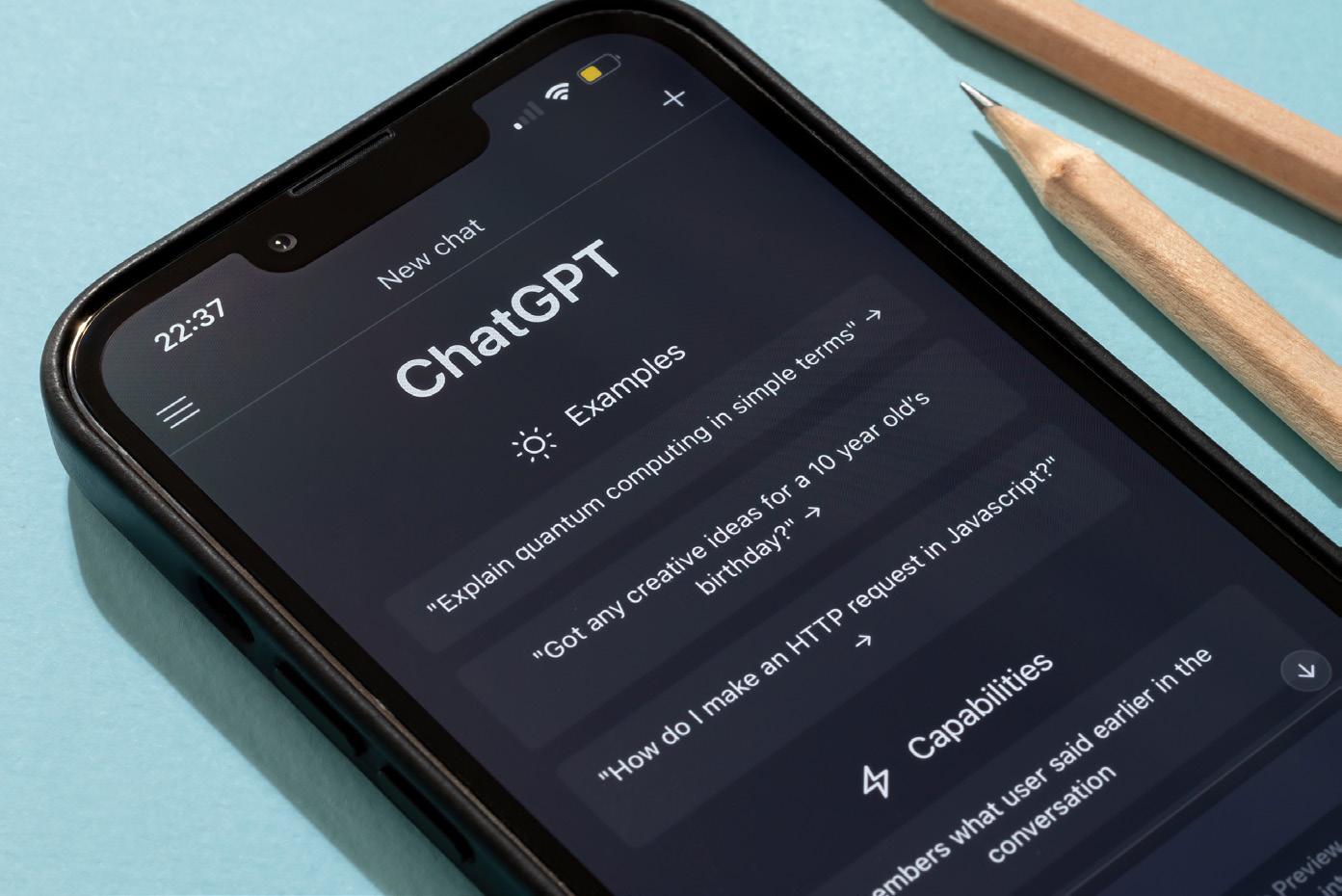
value. Verifying sources and fact-checking are imperative when using AI, as well as across all modern communication platforms.
With the youth of today already so adept at navigating smart technology, the use of AI is the inevitable next step. These tools aren’t going away, so everyone needs to be part of the AI journey, to increase access to it, grow with it and learn to use it ethically and responsibly.
21 AUTUMN 2024 SA HOMESCHOOLING AND BEYOND
"E
ach child is unique. Sometimes they need extra support, help and care to reach the stars. Looking at school options with smaller classes, specialised teachers and therapists could help to fill the gaps so that they can realise their potential,” says Barbra Robinson, the Primary School Principal at Orion College.

Help! My child’s not
Many parents don’t know where to start helping their unique child to shine brightly. How to make the best choice for them? What information is needed to apply to an alternative school? Orion College offers these suggestions to help you on your journey:
Deciding on a school: Cottage, specialist or traditional You can spend a lot of time going on tours of schools that don’t fit your child’s needs. Try to be clear about what you want. Here are some questions to ask yourself:


You’ve tried it all: homeschooling, mainstream, occupational therapy, play therapy and more, but nothing’s working. Your child is unhappy and frustrated – and so are you. When is it time to look at remedial or alternative schools?

22 SA HOMESCHOOLING AND BEYOND AUTUMN 2024
remedial options
remedial options
not coping

• Cottage school, specialist school or “traditional” school. Which model is best for your child and the family?
• Remedial, assisted learning or blended?
• Is occupational therapy, speech and play therapy available? Is this an add-on or part of the school’s offering?

• Are extramurals with a school sports field, tennis courts and swimming pool important?
• Does the school have three or four terms and do these align with the rest of the family’s schedules?
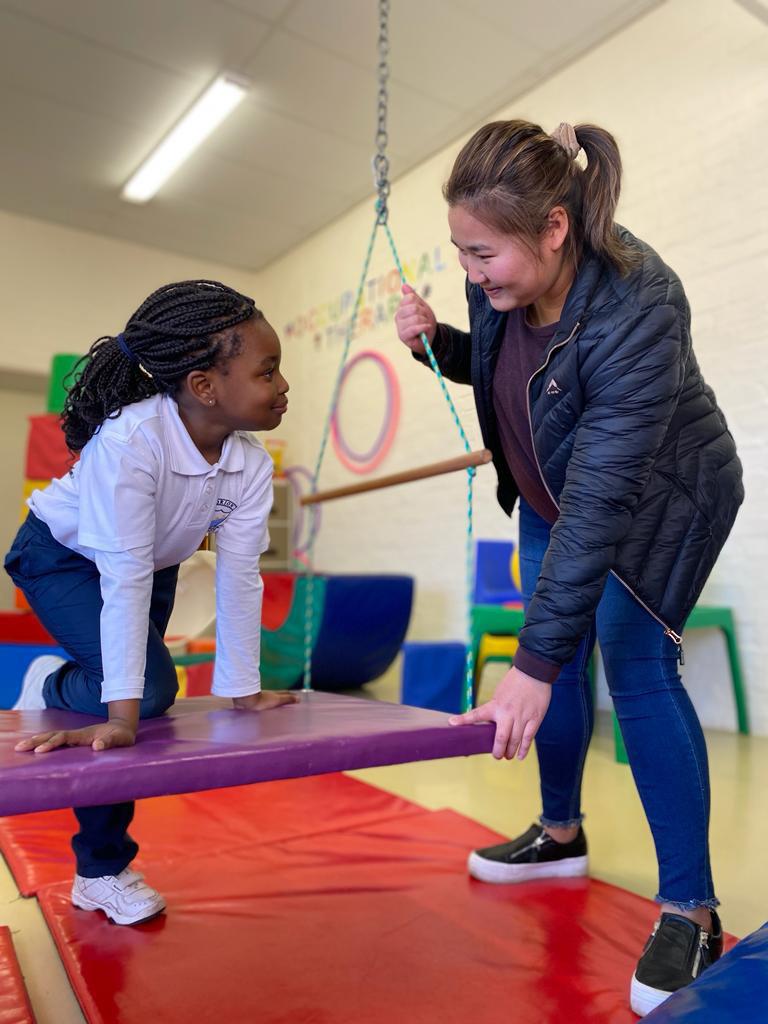

What’s needed when applying to alternative schools
Before you look at any schools, tick some boxes, as the schools will need this. It might also help you decide on what school to choose.
• Book an eye test at an optometrist like EyeTek to check eyesight, tracking, visual integration and more.
• Check hearing at a hearing specialist for an assessment.
• Book your child for a psychoeducational assessment with an educational psychologist. This will identify cognitive and academic strengths and gaps, based on their age.
• Book an assessment by an occupational therapist and speech therapist or get a report from your current ones.
• Seek recommendations from a paediatric neurologist on the way forward.
Start exploring the best options
Before you book to make a tour, ask questions about the type of school, extramurals and the number of in-house therapists. Remember to confirm that the cottage school’s registered, if you’ve chosen that option. Then book the tour and ask the questions that are important to you.
Top alternative schools in Johannesburg
When looking at schools, ask your occupational therapist or play therapist for guidance about your list of options.
Orion College, Randpark Ridge, www.orioncollege.co.za
Glenoaks Remedial and Special Needs School, Kensington, www.glenoaks.org.za
Bellavista School, Birdhaven, www.bellavista.org.za

23 AUTUMN 2024 SA HOMESCHOOLING AND BEYOND
remedial options

Delta Park School, Randburg, www.deltapark.gp.school.za
Japari School, Parkview, www.japari.co.za
Forest Town School, Forest Town, www.foresttownschool.co.za
Bedfordview Learning School, Bedfordview, www.brltc.co.za
Omatas Learning Centre, Fairlands, www.omatas.co.za
Baobab Assisted Learning Centre, Parktown North, www.baobablearnercentre.co.za
* Criteria for selected schools are based on a Google reviews rating of 4,5 and above with more than eight reviews.
Crunch the numbers: Alternative school fees are expensive
When you look at fees, work out whether therapies and extramurals are included in them or whether there are hidden costs. Ask about the enrolment fee before you take a tour to ensure that it’s within your budget.
“We believe therapies are a core part of what helps fill the gaps and remediates a child, which is why we have nine therapists, with everything included in our school fees,” says Robinson. “That means the parent can drop their child off and pick them up after extramurals, knowing all their therapy needs have been met. There’s no need to schedule extra appointments or pay extra costs. We find this reduces the load on the family, who often
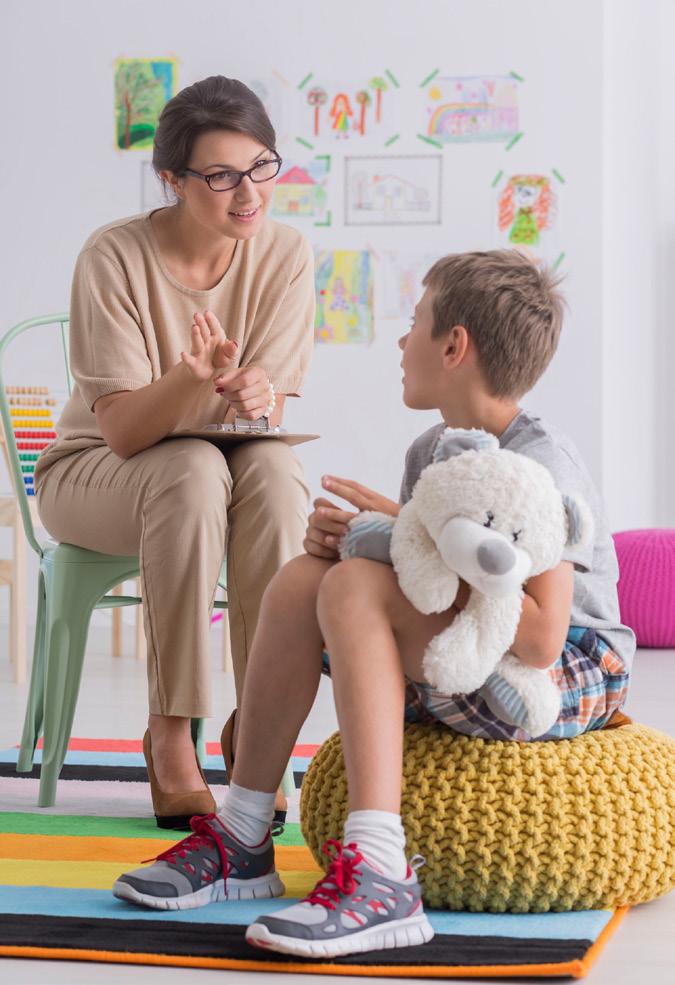
“Before you book to make a tour, ask questions about the type of school, extramurals and the number of in-house therapists.”

try to balance the needs of their other children and family.”


Tax rebates can help You can claim a portion of your medical aid, school fees and other expenses if your child’s been diagnosed with a disability. Diagnoses such as ADHD, autism, epilepsy and dyslexia, among others, are included. You’ll need an educational psychologist or a paediatric neurologist to complete an ITR-DD form. This must be submitted to your tax consultant with supporting invoices and documentation.
“Be careful when reading articles on the web,” says Lelani van Blerk, MD at Omnilutions about tax rebates. “Talk to your tax consultant and financial planner when looking at school fees. The first year’s the most challenging one, with tax rebates offsetting some costs for year 2 onwards.”
24 SA HOMESCHOOLING AND BEYOND AUTUMN 2024

Share your homeschool journey with us by emailing sahomeschooling@isikhova.co.za SA Homeschooling & Beyond readers, WE WANT TO HEAR FROM YOU!
Ask Dalena
Dalena van der Westhuizen will answer any questions or concerns you may have about learning, concentration, memory and cognitive development – and, of course, the frustrations arising from these
Should I take my child for an aptitude test, even if she knows what she wants to do after school? What age is best for taking such a test? –
Surita Oberholzer
Hi Surita
The right age for taking an aptitude test depends on whether you want to use the information to guide your daughter’s subject choices or to assist with her study/career choices. A good age is usually around Grade 9 or Grade 11.


Bear in mind that a study or career path decision shouldn’t be based purely on the aptitude test results alone. However, it can certainly provide additional study and career avenues to investigate or consider, so it's still a useful experience.
If your daughter’s adamant about what she wants to do after school, start investigating the entry requirements for the
specific field she’s interested in, the best tertiary institutions to study at, career opportunities in that specific field, etc.
My two teenagers go to bed near midnight almost every night. They seem to cope fine with little sleep and it doesn’t affect their grades, but could it do so in the future? –
Chantelle Fenn
Hi Chantelle
While individual sleep needs can vary, recent research on learning
and development consistently emphasises the importance of adequate sleep for teenagers. The lack of sufficient sleep, especially on a regular basis, may impact cognitive function, memory and overall well-being.
Even if your teenagers are currently managing well academically, chronic sleep deprivation could potentially catch up with them over time, affecting their concentration, mood and long-term academic and sport performance.
26 SA HOMESCHOOLING AND BEYOND AUTUMN 2024 homeschool support
homeschool support
It’s therefore advisable to encourage healthy sleep habits and ensure they’re getting the recommended amount of sleep for their age group, which is generally eight to 10 hours per night for teenagers – not an easy task, I know!
How can I help my son overcome maths anxiety? –Jackie Mavrodaris
Hi Jackie
I’m very glad you’re asking this question because it’s one many parents struggle with.

To help a child with this, we first need to understand what caused their maths anxiety in the first place. Some children experience maths anxiety because their parents, often unknowingly, have passed on their own maths anxiety to them and they, too, now firmly believe they aren’t good at the subject.
For some children, the problems start when having to work at speed, like during a test or exam. They know the answers, but their brains freeze when working against the clock. For others, not remembering or understanding the "why" behind a maths formula is confusing.
The first step in helping your son would therefore be trying to pin-point the cause of his specific

maths anxiety – it’s an unfounded belief that he’s “not a maths person”. The truth is simply that his knowledge of the academic work or his ability to process the mathematical information is causing his anxiety.
Here’s a link to an article I wrote on this subject in the Spring 2022 issue of SAHS & Beyond: https:// issuu.com/isikhovapublishing/ docs/sah_issue11_spring_2022.
About Dalena
Dalena van der Westhuizen is the co-founder and MD of BrainAbility, a cognitive development specialist, a master brain coach and an internationally certified cognitive coach. She translates the latest international cognitive research and best practice into strategies that can be applied by parents and educators alike.
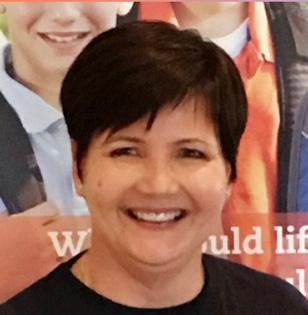
A mom and a self-confessed chocoholic, Dalena enjoys working with both kids and adults to improve the way their brains process information for better learning, reading and focusing.
Send your questions for Dalena to: adri@isikhova.co.za.
27 AUTUMN 2024 SA HOMESCHOOLING AND BEYOND
Meatless meals everyone will
Even the most ardent meat-lovers will enjoy these meat-free recipes – and that includes the kids!

Corn and chakalaka fritters with yoghurt dill dressing
Preparation time: 10 mins
Cooking time: 15 mins
Ingredients:
750ml (3 cups) corn kernels
1 x 410g tin chakalaka (hot or plain)
1 large potato, grated
85ml (¼ cup) chives, finely chopped
250ml (1 cup) self-raising flour
1 large egg
Salt and pepper to taste
Cooking oil for frying
For the yoghurt dressing:
250ml (1 cup) plain yoghurt
10ml (2 tsp) lemon juice
10ml (2 tsp) olive oil
250ml (1 cup) finely chopped dill
Method: Mix all ingredients together and set aside.
What else you will need:
• A medium-sized mixing bowl
• A medium saucepan for frying
28 SA HOMESCHOOLING AND BEYOND AUTUMN 2024
cooking and bonding

cooking and bonding will love


• A chopping board
• A sharp knife
• A cheese grater
• A kitchen towel to drain excess oil
Method:
1. Combine the corn, chakalaka, grated potato, chives, flour, egg, salt and pepper in a mixing bowl.
2. Heat the oil in a frying pan over a medium heat. Then drop heaped spoonfuls of batter into it.
3. Once they are golden-brown and crispy, flip them over so that they can cook through.
4. Drain the corn cakes on a kitchen towel
5. Serve with a generous spoon of yoghurt dressing.
Mushroom risotto
Preparation time: 10 mins
Cooking time: 20 mins
Ingredients:
1½ litres (6 cups) vegetable stock
45ml (3T) olive oil

500ml (2 cups) Portobello mushrooms, thinly sliced
500ml (2 cups) white cap mushrooms, thinly sliced 2 medium onions, diced
375ml (1½ cups) Arborio rice
125ml (½ cup) dry white wine
60ml (4T) unsalted butter
83ml (⅓ cup) finely grated Parmesan cheese
Salt and pepper to taste
What else you will need:
• A small saucepan
• A large saucepan
• A high-brimmed, non-stick pan
• A wooden spoon
Method:
1. Warm stock in a saucepan over a low heat.

2. In a larger saucepan, fry all the thinly sliced mushrooms in olive oil over a medium to high heat for about 3 minutes, until soft. Set aside the mushrooms and their liquid.
3. Add the remainder of the olive oil to the saucepan. Stir in the diced onions and cook until translucent.
4. Add the rice and cook, stirring, until it is pale golden (2-3 mins).
5. Pour in the wine and stir constantly, until it is absorbed.
6. Add 125ml (½ cup) warm vegetable stock to the rice
AUTUMN 2024 SA HOMESCHOOLING AND BEYOND
29
cooking and bonding
and stir. Continue adding stock, half a cup at a time, while stirring constantly, until the liquid is absorbed and the rice is tender, yet not shapeless (15-20 mins).
7. Remove from heat and add salt and pepper to taste.
8. Stir in mushrooms and their liquid, the butter and the Parmesan cheese. Garnish with chopped chives.
9. Serve immediately.

Chickpea and mango salad
Preparation time: 15 mins
Ingredients:
2 x medium cans chickpeas, rinsed and drained of liquid 2 ripe mangos, cut into 1cm cubes
1 medium red pepper, cut into 1cm cubes
1 medium yellow pepper, cut into 1cm cubes


250ml (1 cup) chopped flat-leaf parsley (fresh)
125ml (½ cup) chopped red onions
125ml (½ cup) chopped celery
100g feta cheese, cut into cubes (optional)
What else you will need:
• A chopping board
• A sharp knife
• A medium-sized bowl
• A small bowl
• A salad bowl
For the vinaigrette:
45ml (3T) extra-virgin olive oil
45ml (3T) lemon juice (using 1- 1½ lemons), or more if needed
30ml (2T) mayonnaise
2,5ml (½ tsp) fine salt
Freshly ground black pepper, to taste
Method: Mix all ingredients together and set aside.
To make the salad:
1. In a medium-sized bowl, combine all the fresh ingredients.
2. Toss the salad until combined.
3. Pour the vinaigrette over the salad and mix together.
4. Add feta cheese, if using.

30 SA HOMESCHOOLING AND BEYOND AUTUMN 2024
Anri Fourie, owner of two guesthouses and mom of a nine-year-old daughter and five-year-old triplets, cooks meals that are quick and easy to make – with multiple little helping hands. In the Fourie household, family time is a great time to cook together. As the former owner of a coffee shop, Anri used to share the kitchen with skilled chefs. Today she shares it with her four busy little offspring who’re all eager to pitch in and help.

www.capki dse ducatio nalre so u rce s.co.za | www.capki ds.co.za Call Us: 061 890 0316 | Email: capki dse du@gmail.co m
Fuelled by digital technology and connectivity, video-based learning has emerged as a transformative force reshaping education and training to transcend the boundaries of traditional learning methods, says Tebogo Moleta, founder and MD of Think Tank

The video-based learning revolution
Breaking down traditional barriers
Individuals living in remote locations often find themselves at a disadvantage, lacking access to relevant information available to their urban counterparts. The need to relocate to educational hubs, predominantly located in metropolitan areas, poses a major hurdle. This transition,

especially after completing high school, involves a shift in learning environments and a geographic and lifestyle change. Furthermore, traditional learning assumes limited access to Internet connectivity and devices, anchoring education to physical locations.
Democratising learning through video-based education Video-based learning is a paradigm shift with the potential to democratise learning. It offers a solution to the challenges of traditional education. This means that students are no longer bound by limitations of time and place; they’re free to chart their own learning journey at their own pace. This convenience factor

is further amplified by the ability to engage in micro-learning, which fosters a more profound and meaningful educational experience that makes it easier to consume learning materials to progress and develop new skills.
The role of technology in educational transformation
The ease of learning from any location at any time eliminates the need for physical relocation, addressing a significant barrier in traditional education. The assumption that widespread access to the Internet and mobile devices is lacking has shaped traditional curricula. However, the current technological landscape provides the opportunity to learn flexibly, accommodating individual preferences and lifestyles.
SA HOMESCHOOLING AND BEYOND AUTUMN 2024 32 breaking down barriers
“The saying ‘Show me once, and I’ll remember; show me twice, and I’ll understand’ encapsulates the essence of videobased learning.”
breaking down barriers


Differences between video-based learning and traditional methods
Videobased learning stands out by leveraging the power of visuals and audio to engage multiple senses simultaneously. The saying “Show me once, and I’ll remember; show me twice, and I’ll understand” encapsulates the essence of video-based learning by going beyond static text and images to an all-encompassing experience which is more effective in delivering training content that hits its target.
On-demand learning and micro-learning Pre-recorded sessions allow students to access content in their own time, enabling them to watch
and re-watch as many times as necessary to understand the concepts or skills being taught. Text-based learning or in-person lectures make it challenging for an individual to learn at their own pace. This flexibility further addresses the diminishing attention spans of modern students, who’re accustomed to consuming bite-sized content on various platforms.

Affordability and the modern educational landscape
Once content is developed and published on an appropriate learning platform, it remains accessible online indefinitely, eliminating the need for recurrent investments of time or money. The economies of scale associated with online platforms further contribute to cost-effectiveness and such affordability not only benefits individuals seeking education, but also opens opportunities for educational institutions to explore innovative partnerships and reach a broader audience with their content than the students on their physical campuses.
Choosing the right videobased e-learning platform
When selecting an online videobased e-learning platform, it’s important to prioritise reliability, impactful content, organisational structure and adequate support. The platform’s ability to provide ongoing assistance, both in terms of content development and technical support, ensures a valuable investment. Such platforms enable subject matter experts to monetise their knowledge in a sustainable manner that can easily become a passive income stream and give companies the ability to streamline their internal training to make skills development more cost-effective.
33 AUTUMN 2024 SA HOMESCHOOLING AND BEYOND
Money management for kids

VIn a world that’s becoming increasingly interconnected and economically complex, instilling financial literacy in children has never been more crucial. As parents, we bear the responsibility for equipping our kids with the knowledge and skills needed to navigate the financial landscape they’ll encounter in adulthood
elmah Nzembela, Chief Marketing Officer at
Assupol Life, shares 10 tips for teaching money management and responsibility to kids:
Start early: Lay the foundation The journey to financial literacy begins at an early age. Introduce basic concepts like saving, spending and sharing in a way that’s relatable to your child's daily life. A good example would be using clear jars to represent different categories, allowing them to physically see money being allocated for different purposes.


1 2 3 4
Make learning fun: Educational games and activities Engage your children in games and activities that make learning about money enjoyable. There are board games or digital apps specifically designed for financial education to be both entertaining and educational. These experiences create a positive association with money management.
Set an example: Lead by doing Children often learn by observing the behaviour of those around them. Demonstrate responsible financial habits in your own life. Discuss your budgeting strategies and explain the decision-making process behind certain purchases. This real-world exposure helps them understand the value of money.
Teach budgeting: The basics of income and expenses Guide your children in understanding the concept

SA HOMESCHOOLING AND BEYOND AUTUMN 2024 34 financial literacy
of budgeting. Discuss the difference between needs and wants and help them create a simple budget for their allowances or money received as gifts. Emphasise the importance of saving for future goals.
Open a savings account: Handson experience Consider opening a savings account for your child. Involve them in the process, explaining how interest works and encouraging regular deposits. This hands-on experience fosters a sense of responsibility and introduces them to the banking system.
5 6
Encourage entrepreneurship: Learn by doing Support your child’s entrepreneurial spirit. Whether it’s a small lemonade stand, a craft sale or a pet-sitting service, these ventures teach valuable lessons

about earning money, managing expenses and the satisfaction of hard work.
7 8 9
Discuss money matters:
Open communication
Create an environment where your children feel comfortable discussing money matters. Answer their questions openly and honestly. As they grow older, include them in family discussions about major financial decisions, helping them understand the broader financial landscape.
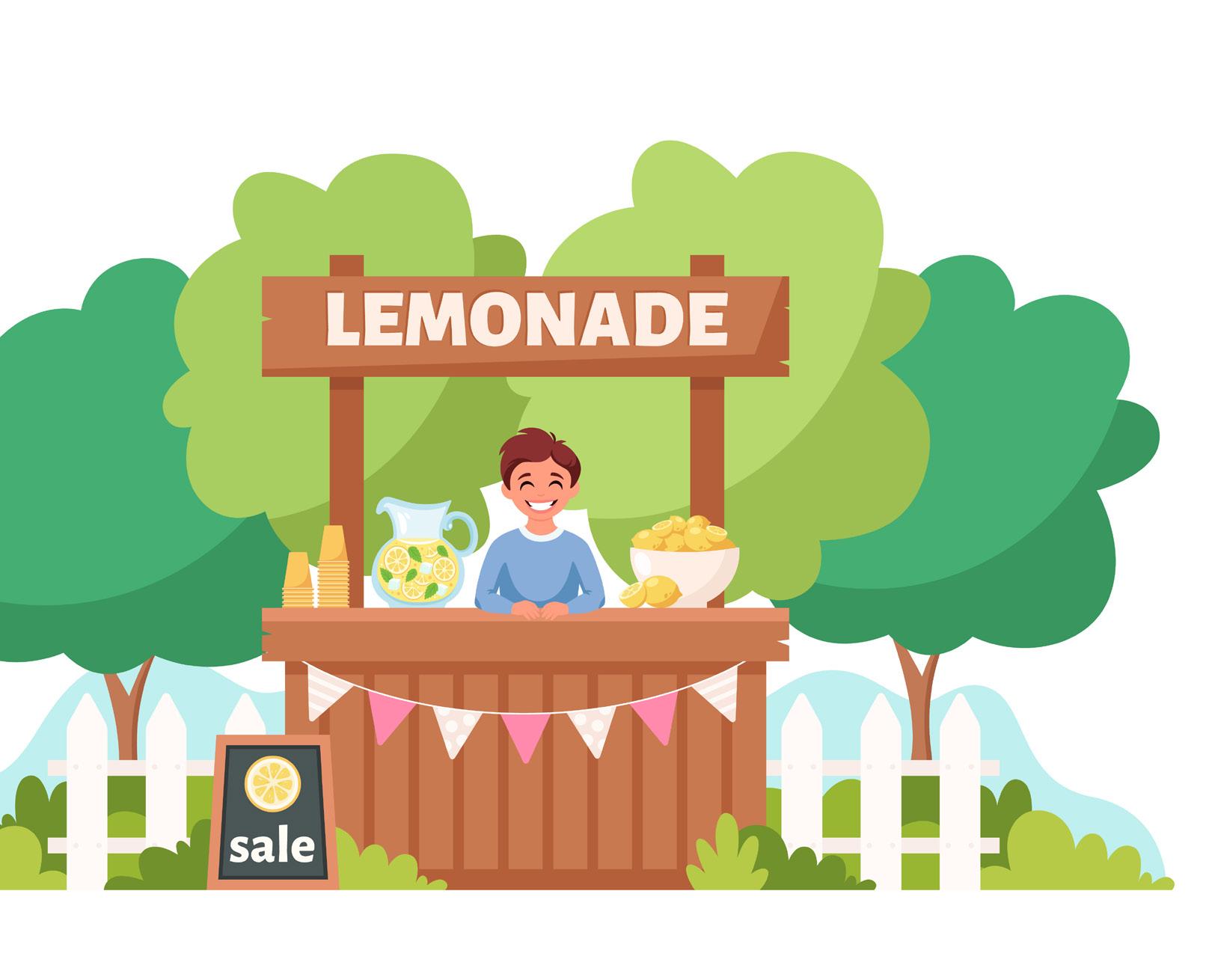
“Support your child’s entrepreneurial spirit.”
Utilise online resources: Technology as a teaching tool Take advantage of the numerous online resources dedicated to financial literacy for children. Websites, apps and interactive tools can provide additional support in reinforcing key concepts and making learning engaging.
Explore financial literacy programmes: Community involvement Look for financial literacy programmes or workshops in your community. Some organisations offer workshops specifically designed for children, providing interactive learning experiences outside the home.
10
Reward financial responsibility:
Positive reinforcement
Acknowledge and reward your child’s efforts in practising financial responsibility. This positive reinforcement creates a connection between responsible financial behaviour and happy outcomes, reinforcing good habits.
35 financial literacy AUTUMN 2024 SA HOMESCHOOLING AND BEYOND
Is your child a Gestalt language processor?

Robyn Barlow, Speech Therapist at The Bridge Assisted Learning School, says many Gestalt language processors are neurodivergent – and while it can be a frustrating experience talking to a child who echoes your questions back to you, it’s important to encourage communication in any form and to support your child through neuro-diverse-affirming approaches
Agrowing area of interest in the speech therapy profession is Gestalt language processing, which refers to children who learn language in a way which is different from analytical language-learners. Rather than learning to make sounds, then words and then sentences, they learn whole phrases first and may repeat sentences or questions back to their communication partners.
Barlow and her colleague Renie Sutherland, Principal at The Bridge Assisted Learning School

Morningside, provide tips for parents on how to communicate with Gestalt language processors, stressing that it isn’t a problem, but a potential and that parents can play a vital role in supporting their child’s language and holistic development.
“For those with a psychology background, the word ‘Gestalt’ is familiar, but it essentially means ‘learning from the whole to the part’. For example, rather than learning the word ‘done’, a Gestalt language processor might say: ‘Well done, excellent job!’ every time they
36 SA HOMESCHOOLING AND BEYOND AUTUMN 2024 understanding communication
complete a task, regardless of whether the job was completed or not,” explains Barlow.
“It’s a type of language development that usually presents with echolalia. Echolalia refers to sentences or phrases that are repeated, which can either be delayed or immediate. Children who do this usually repeat your questions back to you or repeat a line from a TV show in a sing-song manner,” she says.
“It can be frustrating when your questions are constantly said back to you by a small person. For many, it may appear that the child’s unaware of what’s being asked, but research has shown that that isn’t true. As communicative partners of these children, it’s important to encourage communication in any form.”
The following are tips for parents and teachers communicating with Gestalt language processors:
Acknowledge the communication. This can be through a smile or a nod, but the attempt to communicate must be acknowledged.

Model language. The child has formed associations with these phrases that may be tricky to decipher. For example, they may say: “That’s a big truck” every time they see a truck. As a caregiver, modelling various sentence structures and intonation patterns, and modifying the sentence, is a good way to stimulate language. For example: “Is that a big truck?” or “Yes, that’s a big red truck.”
However, sometimes the phrase can be attached to an emotion. Determining whether an emotional response is attached to a phrase can help you and the child identify big feelings and better ways of managing them.

“While we don’t know what causes children to be analytic or Gestalt processors, we do know that Gestalt language processing using echolalia is a valid form of communication. Many children who’re Gestalt language processors are neurodivergent and it’s important to learn how to support them through neurodiverse-affirming approaches,” says Barlow.
Sutherland adds that, as is the case with all neurodiverse children, parents should seek additional assistance if they feel unsure or concerned about their child’s development.
“Sometimes neurodiverse students can’t thrive in mainstream schools, but they may also not

37 understanding
communication
1
2 3
understanding communication
be suited for special-needs schools. Nevertheless, children with average to above-average ability, whose learning is impacted by challenges such as ADHD, dyslexia, mild autism and anxiety, or children who’ve been through illness or trauma which has affected their scholastic progress, as well as children who display signs of Gestalt language processing, may find the necessary support from therapy or schools that cater to neurodiverse children.
“Gestalt language processing isn’t a disorder, but a different way of learning using language which can be nurtured and enhanced with the right guidance and strategies. If parents notice any signs that suggest Gestalt language processing, they may want to consult a speech-language pathologist or therapist who

“Parents can play a vital role in supporting their child’s language and holistic development.”


can assess the child’s language skills and provide appropriate intervention, support and guidance.”
Gestalt language processing isn’t a problem, but a potential, says Sutherland.
“Therefore, parents shouldn’t be concerned or alarmed if they notice what could be Gestalt language processing in their children, as it’s a natural and valid way of learning and using language. However, parents can play a vital role in supporting their child’s language and holistic development by being responsive and collaborative with the child, their educators and other support structures.”
38 SA HOMESCHOOLING AND BEYOND AUTUMN 2024


Online interactive learning resources.
Preschool - Gr .12. FREE placement tests.
Online tutorials.
Online assessments, tests & exams.
Parent progress monitoring & reporting.

Find & fix learning gaps. Student motivational tools.
Can be used as full curriculum or supplementary.
DISCOVER THE POWER OF INDIVIDUALIZED LEARNING
14-DAY FREE TRIAL Quality Education that is Affordable, Flexible and Personalized www.educ8sa.com 084 685 2138 info@educ8sa.net
WHAT WE OFFER
Handpicked, award-winning curricula.
Volunteering isn’t just “a thing to do” – it’s the thing to do. Studies show that kids who devote some of their free time to volunteering help not only others, but themselves too

Become a volunteer
It’s estimated that only a small percentage of people volunteer on a regular basis, giving their time free of charge to help groups, clubs and charities. The number of young volunteers is even lower. Yet volunteering comes with many benefits, especially for young people, and is definitely worth
considering for homeschooling families. Learning compassion and generosity, as well as gratitude for what one has, are high among these benefits.
SA Homeschooling & Beyond sat down with 14-year-old Summer Müller Thomson, who decided to donate the money she made from making and selling her own
jewellery at markets to the Animal Welfare Society (AWS) of SA, which was in need of supplies for animals found during the Simonstown fire. This inspired her to keep donating.
Tell us about yourself. One of my biggest hobbies is reading. I’m almost always carrying a book around. I also do ballet and play netball and I used to play cricket, which I really loved. I enjoy spending time with my friends and family, but I have the most fun when I’m with my cousins. I adore animals and have many pets. I love making things and being creative.
Do you have any pets? I’ve always loved animals and have had many pets. I currently have four cats, two of which live with my mom and two with my dad. My latest baby is Cathy, a small kitten which is a real handful. She loves playing and is constantly running around. I also have a Pomeranian called Molly that lives with my dad and I love her to bits as well. I’ve always enjoyed playing with animals and having a buddy who’ll always be there for me.
What inspired you to start this initiative? A few years ago, my cousins and I began making jewellery together and I started selling it to friends and family. Then I decided to turn it into a small business and started selling it at small markets. After selling a number of bracelets, I decided
40 SA HOMESCHOOLING AND BEYOND AUTUMN 2024 community engagement
not to keep all the money for myself, but to donate it to a good cause. My first choice was the AWS, because it needed supplies to care for the animals that were found after the Simonstown fire. It made me feel really happy and has inspired me to keep donating.
What did you learn? I learnt that doing something really small can have a big impact, no matter what it is. I also learnt not to give up, because if you keep going, you can do amazing things.
Is volunteering or getting involved in a community project something you’d recommend to other young people? Absolutely! It gives you something that keeps you busy and teaches you to be really grateful for everything you have. It also allows you to connect with new people and make friends.

community engagement
What advice would you give those considering getting involved in volunteering or community projects? I’d tell them to keep going. Whether it’s big or small, it makes a real difference. Enjoy it and don’t be shy to start, because it can lead you on a fun and joyful journey as you meet new people while doing something to help others.




Opportunities for volunteering
So how can kids get involved? Asking around at local shelters, churches, schools and food banks is a great first start. There are also national and local websites and social media pages focused on connecting volunteers with opportunities in their area.
41 AUTUMN 2024 SA HOMESCHOOLING AND BEYOND






What we offer:EDUC8SA



BELLAVISTA SHARE
www.bellavista.org.za/Bellavistashare share@bellavista.org.za
011 788 5454 (press #2)

BK PUBLISHING
www.bkpublishing.co.za mail@bkpublishing.co.za
012 342 5347

CAP KIDS
www.capkids.co.za capkidsedu@gmail.com
061 890 0316

CONQUESTA
www.conquestaolympiads.com
www.conquestapastpapers.com conquest@iafrica.com
031 764 1972

www.educ8sa.net info@educ8sa.net
084 685 2138
•
ISIKHOVA MARKETING
www.isikhova.co.za ruwayda@isikhova.co.za 011 883 4627

KRAGDAG
www.kragdag.co.za info@kragdag.co.za 086 771 1091
MASKEW MILLER LEARNING
www.mml.co.za Nosmilo.Mashwama@pearson.com
021 532 6000

PENGUIN RANDOM HOUSE
www.penguinrandomhouse.co.za queries@penguinrandomhouse.co.za 021 460 5400/011 327 3550
42 SA HOMESCHOOLING AND BEYOND AUTUMN 2024 brand supporters ACADEMIC COACHES www.academiccoaches.co.za info@academiccoaches.co.za 012 345 1540 b e l l a v i s t a • s • h • a • r • e • EDUCATION RESOURCE CENTRE www.bellavista.org.za/Bellavista-share e-mail share@bellavista.org.za +27 (11) 788 5454 (press #2) Deve oping Early Literacy and Numeracy Presented by Mu t disc p nary Be lav s a Team 03 and 04 Oct 2023 R2 100 Anneke de Jager Anna Tyranes Dan e a Al an & Mer e Crooke 13 Sep ember | 15h00 -17h30 Inclusive Practices When Who and How to refer a chi d R450 Learning hub including Virtual Reading Intervention Th - k y pp p g 30-40 p k 12 h y p g d pp h S x Week V r ua Reading n ervent on Instrumenta Enr chment Bas c 1 09 10 11 12 13 & 16 Oct 2023 | 13h00 - 17h30 da ly R14 900 20 Sep ember | 13h00 -16h30 Presen ed by Tara the H Moross Psychiatr c Hospi al Understanding the Adolescent FREE Virtual Cognitive Intervention Th s s x-week cogn ve educa on p ogramme w nvo ve wo 30-40 m nu e ses ons per week 12 esson w h a pe a s herap s done o er a v r ua p a o m a a mu ua y conven en me S x Week Vir ua Cogn t ve Educa ion R3 780 00 BELLAVISTA SHARE provides ongoing professional development for educators and health professionals. Our wealth lies in our professional knowledge, experience, and collective expertise. BELLAVISTA SHARE is a resource to support educators and therapists in their professional development. We host workshops, evening talks and conferences in addition to active mentoring programmes, we support homeschooling programs with our content.
what we know; Help where we can; Advise and assist; Resource and equip; Educate others”. hub including Virtual Reading Intervention Th s x-week eracy uppo ogramme w nvo ve wo 30-40 m nu e ses ons per week 12 esson w h a e acy spec a u ng a cumu a ve s uc u ed approach S x Week V r ua Reading n ervent on R3 780 00
“Share
Qualityeducation thatisaffordable,flexibleandpersonalized. Discover the power of individualized learning.
Handpicked award-winning curricula • Online interact ve learning resources Preschool - Gr 12 • FREE placement tests • Online tutorials Online assessments tests and exams • Parent progress monitoring & reporting • Find and fix learning gaps Student motivational tools • Can be used as full curriculum or supplementary 14-day FREETRIAL www.educ8sa.net info@educ8sa.net 0846852138 Preschool - Gr. 12 GED
American High School Diploma.
The
If you have your own homeschooling service whether it be social activities, caregiving services, gardening for kids programmes, extramurals, educational games/puzzles, outdoor activity programmes and the like, then SA Homeschooling’s “Chalkboard” pages are the perfect way to get them promoted. And at an exceptionally affordable rate with fantastic exposure!





































CHALK ONE UP WITH SA Homeschooling and Beyond’s “CHALKBOARD!” Find us on Facebook & Instagram CONTACT US FOR MORE INFORMATION THULI thuli@isikhova.co.za OFFICIALLY ENDORSED CNA EXAM TIME The do’s and don’ts of parenting during exam time How to stop being an angry parent Turn down the heat SPRING 2023 Crucial skills for success fun activitiesspring OVERCOMING OBSTACLES Dyscalculia: More than a maths struggle 20 LEARNING STYLES Myths and truths How to raise an entrepreneur WINTER 2023 Deciphering food labels A guideparent’s Empowering the child who learns differently Enter & win Competition Homeschooling sa SPRING 2022 FAMOUS HOMESCHOOLERS GAME, SET AND MATCH Hearing health 20 The power Tips to motivate learning Learning a second language and beyond BY things successful homeschool parents do 8 Growth mindset: what’s all the hype? A new phenomenon in racquet sport SUMMER 2022 padkosTastyfor yourtriproad Keeping your kids safe online
OFFICIALLY ENDORSED CNA ways to strengthen your parent-child relationship 10 Understanding the teenage brain Low muscle tone – what does it mean for my child? AUTUMN 2023 The manybenefits of dance for children Study smarter, not harder in 2023

Branding available Contact | Landline 011 883 4627 | www.isikhova.co.za Stationery labels, notebooks, deskpads, calendars and diaries + STUDY, PLAYTIME ANY TIME GEAR



















































































































































































































































































































































